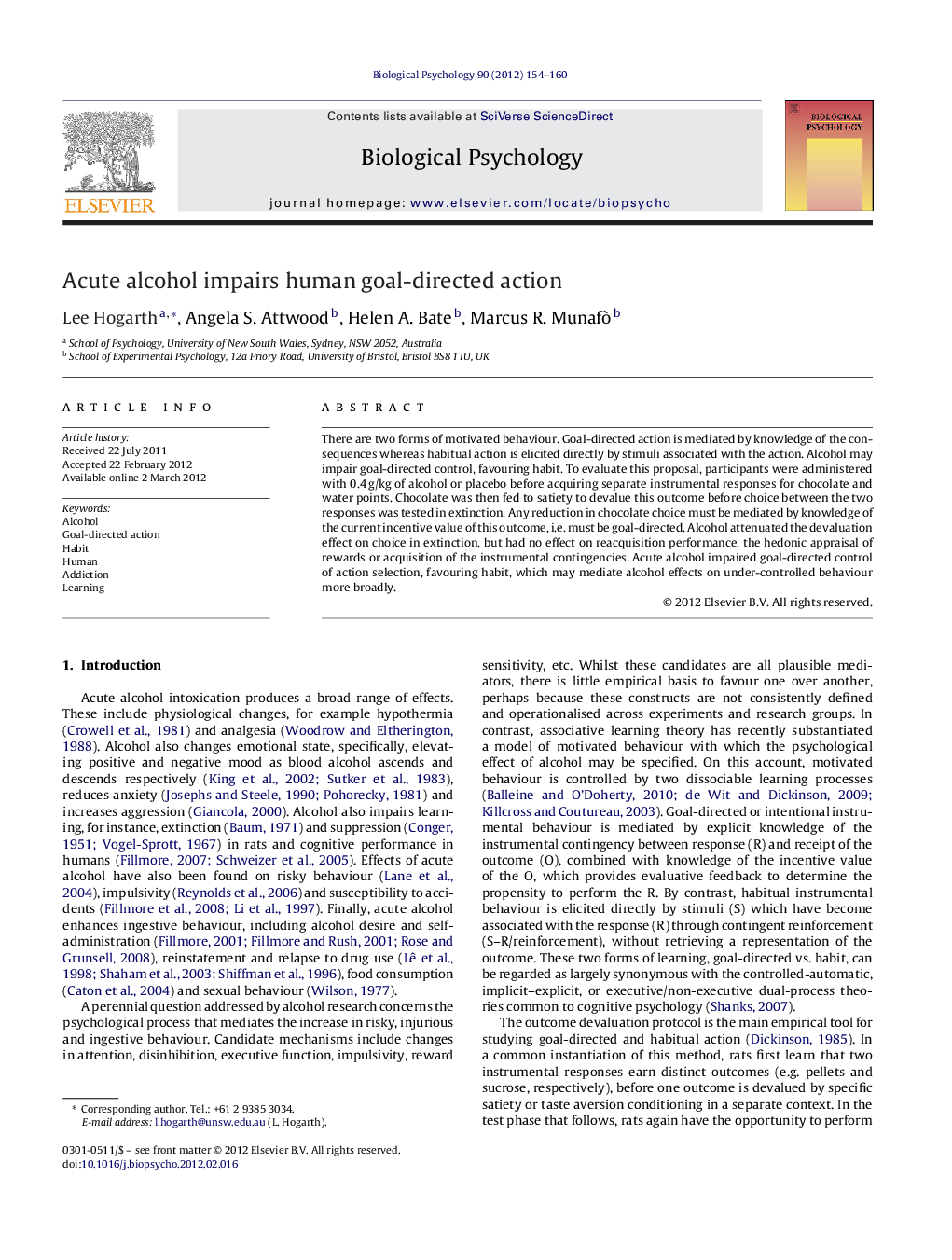| Article ID | Journal | Published Year | Pages | File Type |
|---|---|---|---|---|
| 921111 | Biological Psychology | 2012 | 7 Pages |
There are two forms of motivated behaviour. Goal-directed action is mediated by knowledge of the consequences whereas habitual action is elicited directly by stimuli associated with the action. Alcohol may impair goal-directed control, favouring habit. To evaluate this proposal, participants were administered with 0.4 g/kg of alcohol or placebo before acquiring separate instrumental responses for chocolate and water points. Chocolate was then fed to satiety to devalue this outcome before choice between the two responses was tested in extinction. Any reduction in chocolate choice must be mediated by knowledge of the current incentive value of this outcome, i.e. must be goal-directed. Alcohol attenuated the devaluation effect on choice in extinction, but had no effect on reacquisition performance, the hedonic appraisal of rewards or acquisition of the instrumental contingencies. Acute alcohol impaired goal-directed control of action selection, favouring habit, which may mediate alcohol effects on under-controlled behaviour more broadly.
► Motivated behaviour is the sum of goal-directed choice and automatic habits. ► Alcohol may impair goal-directed control in favour of habit. ► Alcohol impaired human goal-directed action in the outcome devaluation protocol. ► This impairment may drive under-controlled behaviour more broadly.
